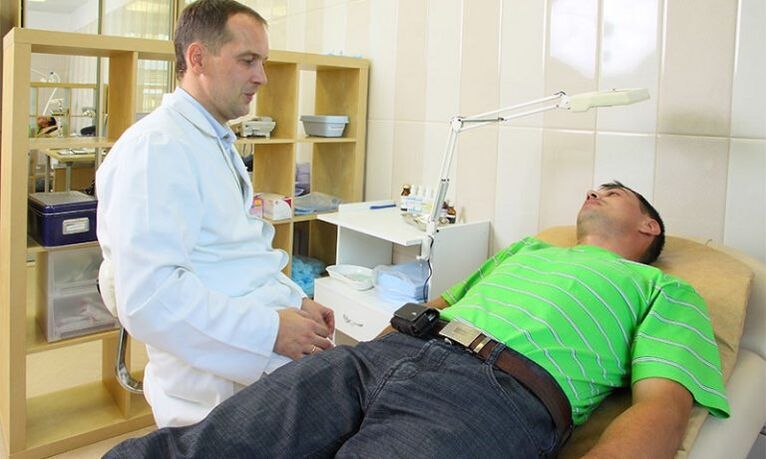The outcome in the treatment of any disease depends entirely on the doctor, and this is a fact that will be confirmed even by the doctors themselves. The same goes for prostatitis, because this complex male disease requires proper diagnosis and complex and competent therapy in the future.

It is hard to believe, but even the duration of treatment depends entirely on the doctor. Inflammation of the prostate gland manifests itself in many ways, from urinary problems to high fever. If similar symptoms are found and there is a suspicion of this disease, which doctor should I consult for prostatitis?
Urologist - a doctor for the treatment of prostatitis
Thus, if a man has some problems with the genitals, as well as "problems" in the functioning of the urinary system, he should consult a single doctor - a urologist. At the first reception in the clinic, it is necessary to pay attention to how the doctor did his job, because the duration of therapy and its final outcome will now depend on him.
In addition, if possible, it is advisable to consult several doctors of this specialty at once. But first, to visit the offices of urologists with ready results, you need to go through a number of studies.
How does a urologist diagnose prostatitis?
The first thing to expect from a urologist is a medical history. In other words, the doctor talks to the patient, clarifies some questions about his personal life, including his intimate life, and asks in detail all the complaints and symptoms.
Additional examination of the patient will be required. Palpation is one of the methods of examining the patient, during which the doctor determines the size, consistency and sensitivity of the prostate gland. Based on this, the urologist can make an initial diagnosis of the presence of prostatitis.
To confirm the diagnosis, the doctor prescribes a series of tests. A blood and urine test is mandatory, and in addition, the prostate gland secretion is often obtained to determine the number of leukocytes, amyloid bodies, and lecithin grains.
Analysis of the secretion of the urethral canal will help determine whether the inflammation of the gland affects the urethra. To do this, take a smear using a special probe with a tampon that goes directly into the urethra.
Blood culture is performed to determine the nature of the prostatitis and when the infectious etiology is suspected. This will help identify a group of pathogenic microorganisms that live in a person's body.
Depending on how well the doctor conducts the examination, how many or how many tests are prescribed, it can be concluded which doctor to consult for prostatitis - a urologist at the clinic at the place of registration or working in another institution. . .
What other doctors are involved in the treatment of prostatitis?
It is already known which doctor to consult for acute or chronic prostatitis, but you should also know that only a urologist will not have to see a patient.

Physiotherapeutic methods that affect the inflammatory process in the body are often prescribed in the treatment of inflammation of the prostate gland. Thus, the patient will see a physiotherapist for the procedures recommended by the urologist.
These procedures include:
- baths;
- electrophoresis;
- Magnetic field;
- Ultrasound;
- galvanizing;
- Light therapy;
- inductothermy;
- Microwave therapy;
- Laser therapy.
If you do not take measures to strengthen the immune system, there can be no effective treatment regimen. This means that another doctor who treats prostatitis is an immunologist.
By the way, you can also answer the question of which doctor to consult for chronic prostatitis, but only after talking to a urologist and taking blood and urine tests of the patient.
Inflammation of the prostate gland in this form requires the proper and trouble-free functioning of the immune system, and only an immunologist can prescribe the right medication.
Problems in the genital area, especially with chronic prostatitis, often have a negative effect on the male psyche. For him, not being able to have a full sexual life can be compared to the end of the world. There may be associated complexes, stress, anger and deep depression.

The psychotherapist usually not only talks to the patient, but also prescribes sedatives to help him cope with depression and adjust to treatment.
The psychotherapist plays a special role in the treatment of prostatitis, because if the patient believes that he will recover and recover, it will come very soon.
If the clinic does not have a urologist, but there is an andrologist, you can contact him. He specializes only in male diseases, including prostatitis.
























